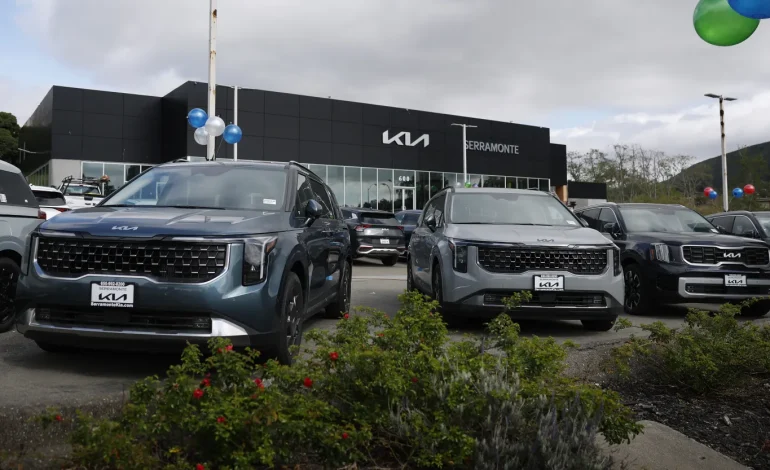Vehicle supplies in the United States are declining rapidly as consumers rush to purchase new and used cars ahead of potential price increases tied to ongoing auto tariffs, CNBC reports.
Industry analysts and dealers report a surge in demand driven by fear of rising costs, which has significantly reduced inventory levels across the country.
According to data from Cox Automotive, the days’ supply of new vehicles — calculated based on estimated daily retail sales — has fallen from 91 days at the start of March to 70 days in April. This represents one of the sharpest monthly drops in several years, far exceeding the typical five- to seven-day shift seen in a more stable market. Used vehicle supply has also tightened, dropping four days to a 39-day supply.
“Consumers are trying to get ahead of tariffs on imports,” said Jonathan Smoke, chief economist at Cox Automotive. “The decline in [new] days’ supply was one of the largest drops we’ve seen in several years.”
New vehicle sales are currently running 22% above the seasonally adjusted pace from last year and have risen more than 8% year-to-date. The used vehicle market has also experienced robust growth, with a 7% increase compared to the same period in 2024, according to Cox.
While the sales boost is welcome for many in the auto industry — especially after forecasts had predicted flat performance — some analysts warn that the current pace may not be sustainable. Once tariff-free inventory is depleted, vehicle availability could shrink further, leading to a slowdown in sales.
Auto advisory firm Telemetry estimates that higher production and parts costs linked to tariffs could eventually lead to a reduction of up to 2 million vehicles sold annually in the US and Canada. While some automakers may absorb part of the cost, much of it is expected to be passed on to consumers.
To prepare for the impact of tariffs, automakers had previously built up inventories of imported vehicles. However, some have since scaled back imports, delayed shipments, or even halted them altogether. For example, Jaguar Land Rover has reportedly paused some US vehicle imports.
General Motors has taken steps to boost domestic output, ramping up production at a pickup truck plant in Indiana and canceling previously scheduled downtime at a Tennessee facility. Other automakers, such as Ford and Stellantis, are offering promotions like “employee pricing” to move inventory more quickly.
Dealers across the country are feeling both the benefits and challenges of the current sales environment. Ryan Rohrman, CEO of Rohrman Automotive Group in Indiana, said that April began with strong momentum following a successful March.
“Business right now is actually pretty strong,” he said. “It hasn’t slowed down.”
Nick Anderson, general manager of a Ford dealership in Missouri, noted that price-sensitive buyers are responding to discounts and concerns about future price hikes.
“The majority of people we’re seeing are definitely more price-conscious,” he said. “Our volume is there, but the gross is down.”
Anderson added that sales performance over the next few months will depend largely on how tariff policies evolve. Meanwhile, President Donald Trump has said he wants to “help some of the car companies,” though details on potential support remain unclear.










The latest news in your social feeds
Subscribe to our social media platforms to stay tuned